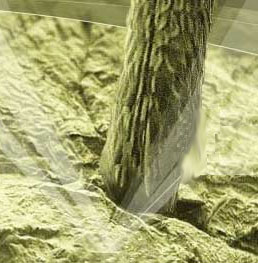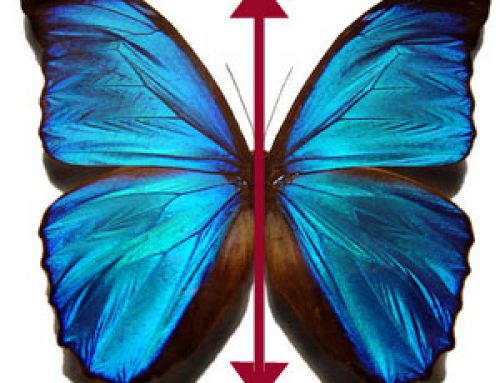
Mosquitoes bite people: A mosquito on human skin
Like bees, mosquitoes evolved from earlier flies and dragonflies about 200 million years ago, during the Jurassic period. Mosquitoes have six legs like other insects. Also like bees, mosquitoes evolved to eat pollen from the new flowers that appeared about this time. And like bees, mosquitoes can sting.
But where bees sting as a way of defending themselves from enemies, mosquitoes evolved a way to use their stingers to eat blood from reptiles like dinosaurs that were the main animals on Earth at this time. Only girl mosquitoes suck blood, because the girls need extra energy to make eggs.
A mosquito sucking blood: watch as the abdomen fills up with blood
Mosquitoes hatch out of eggs in wet places like ponds or puddles. Baby mosquitoes, or larvae, look like segmented worms about the size of a grain of rice, and they eat algae and bacteria on the surface of the water. They stay babies for about a week or two, depending on the weather, and then transform into pupae and then into adults that can fly. Adult mosquitoes can live about a month, though most of them only make it a week or two.

Proboscis: A mosquito stinger close up
Girl mosquitoes have to spend most of their time looking for some animal to bite, so they can make eggs. A mosquito can find victims using smell, sight, and heat sensors. She can see any color that is different from the plants around you. She can use hairs on her antennae to smell sweat, and to tell if you’re moving.
When a mosquito finds an animal to bite, she sticks her stinger through your skin. It doesn’t hurt because the stinger is serrated, with lots of tiny teeth, so that very little of the stinger touches your body at any time, and it doesn’t irritate your pain nerves. Then she drips some of her spit (saliva) into you, which helps keep your blood from clotting while she’s drinking it.
Later, your body has a small allergic reaction to the saliva. Like any allergic reaction, your body can get used to it over time, so children often have worse reactions to mosquito bites than grownups do, and if you travel to a new place with different kinds of mosquitoes, you may get worse reactions there than you do at home.
If you live in the United States or Europe, then mosquito bites are mostly an itchy nuisance. But in most of the rest of the world, mosquito bites can infect you with dangerous diseases: malaria, dengue, and yellow fever. Yellow fever and malaria used to be a big problem in the United States and Europe as well, during the 1700s and 1800s AD. And they may not be gone for good. Climate change may bring malaria back to the United States in the next few years.




